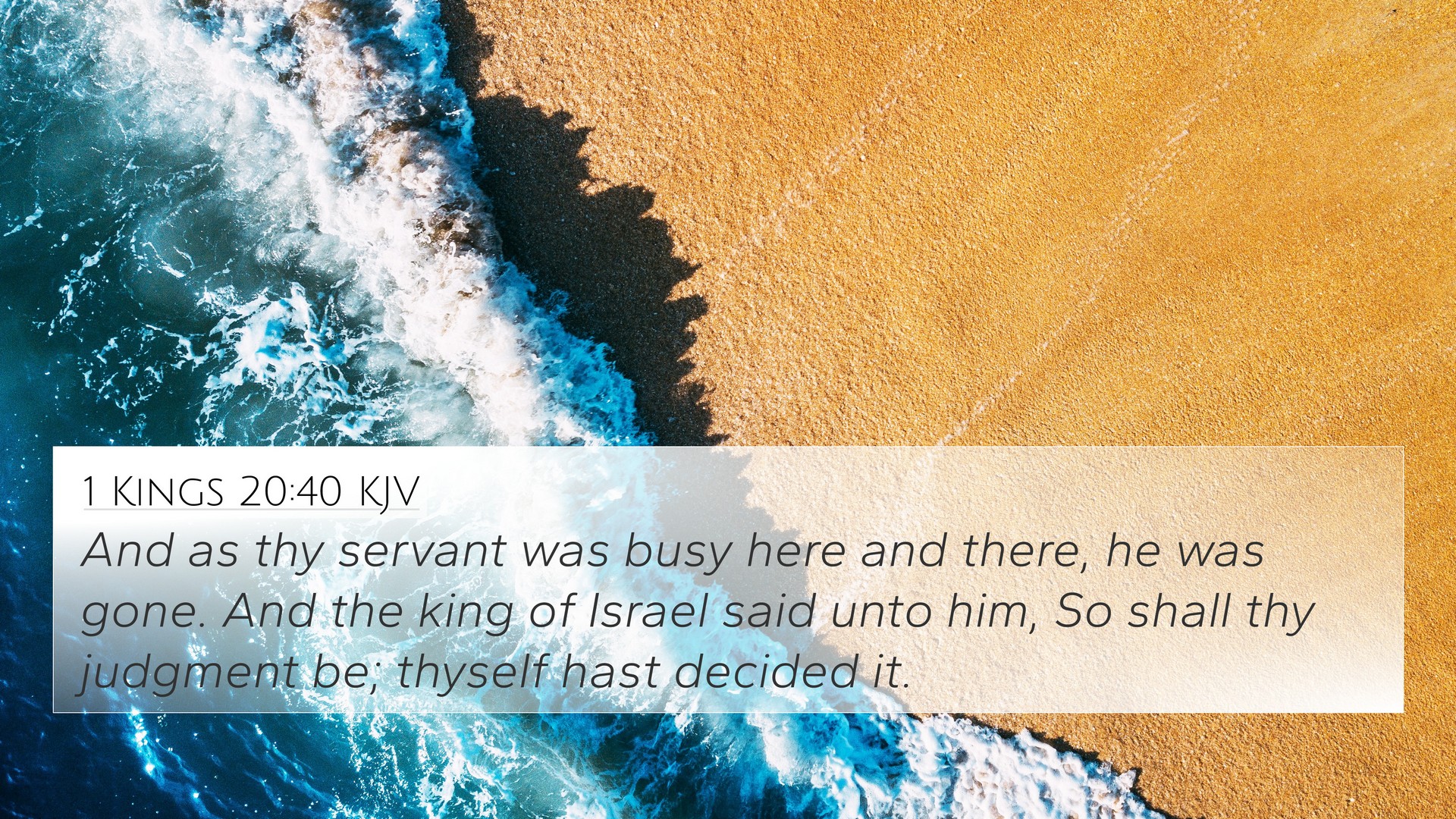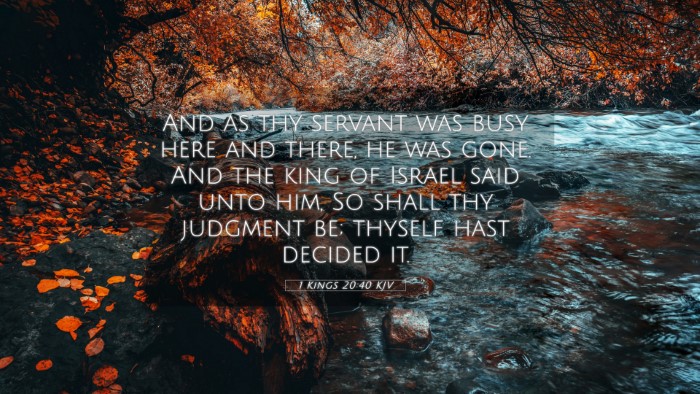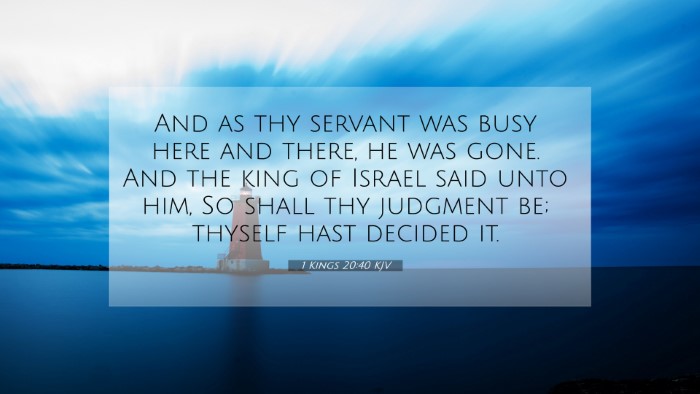Understanding 1 Kings 20:40
The verse 1 Kings 20:40 states:
"And as your servant was busy here and there, he was gone." (1 Kings 20:40, ESV)
This verse recounts a moment of deception characterized by the servitude of a man who was tasked with overseeing an important captive. The foundational meaning suggests themes of accountability and the dangers of neglecting one’s responsibilities.
Contextual Background
The context of 1 Kings 20 details the conflict between Israel and Syria, where King Ahab of Israel is in a precarious position regarding negotiations with King Ben-Hadad of Syria. The verse follows a narrative filled with intrigue, where prophetic warnings juxtapose the actions of human agents.
Commentary Insights
The analysis of 1 Kings 20:40 from public domain commentaries reveals the following insights:
- Matthew Henry: Henry comments on the nature of human distractions and responsibilities. The servant's claim of being 'busy' signifies how easily one can be diverted from their primary duties, leading to disastrous consequences.
- Albert Barnes: Barnes emphasizes the element of accountability, indicating that the servant was perfectly aware of his duty but failed to execute it, reflecting the theme of judgment for negligence.
- Adam Clarke: Clarke draws attention to the allegorical implications of the verse, relating it to spiritual vigilance and the need for believers to remain watchful in their duties to God, likening the servant’s negligence to the Christian's need for faithfulness in their walk with Christ.
Biblical Themes and Connections
This verse is emblematic of several larger themes throughout the Scriptures:
- Accountability: The emphasis on responsibility is prevalent throughout the Bible. Jesus speaks of faithfulness in Luke 12:42-48, where servants are held accountable for their actions while the master is away.
- Distraction and Negligence: In Proverbs 19:15, slothfulness leads to neglect, highlighting the importance of diligence in our tasks.
- Divine Sovereignty and Human Agency: The tension between divine control and human responsibility is a recurrent theme. Romans 14:12 elucidates that each will give an account of themselves to God.
Related Cross References
This verse has dynamic connections with several other Bible verses, illustrating the interconnectedness of the Scripture:
- 1 Samuel 15:22 - God's desire for obedience rather than sacrifice.
- Matthew 25:26-30 - The parable of the talents and the consequences of inaction.
- Luke 12:35-40 - A call to be ready and vigilant.
- Galatians 6:5 - Each person should carry their own load, emphasizing personal responsibility.
- Revelation 3:2 - Warnings to strengthen what remains and is about to die.
- Hebrews 10:24-25 - Encouragement to spur one another toward love and good deeds.
- James 4:17 - Knowing the right action and failing to do so is sin.
Interpretations and Applications
In practical terms, this verse encourages readers to evaluate their personal responsibilities and to be diligent in performing their duties. This relates not just to worldly responsibilities but also to spiritual obligations towards God and others.
Conclusion
1 Kings 20:40 serves as a profound reminder of the principle of accountability and the critical nature of our commitments. As believers, it is essential to reflect on how we manage our responsibilities—both in the mundane aspects of life and the divine call we each hold. Through the insights gained from this text and its connections to broader biblical themes, we are challenged to critically engage with our spiritual journey, ensuring we do not become distracted by the urgent but unimportant tasks of life.







